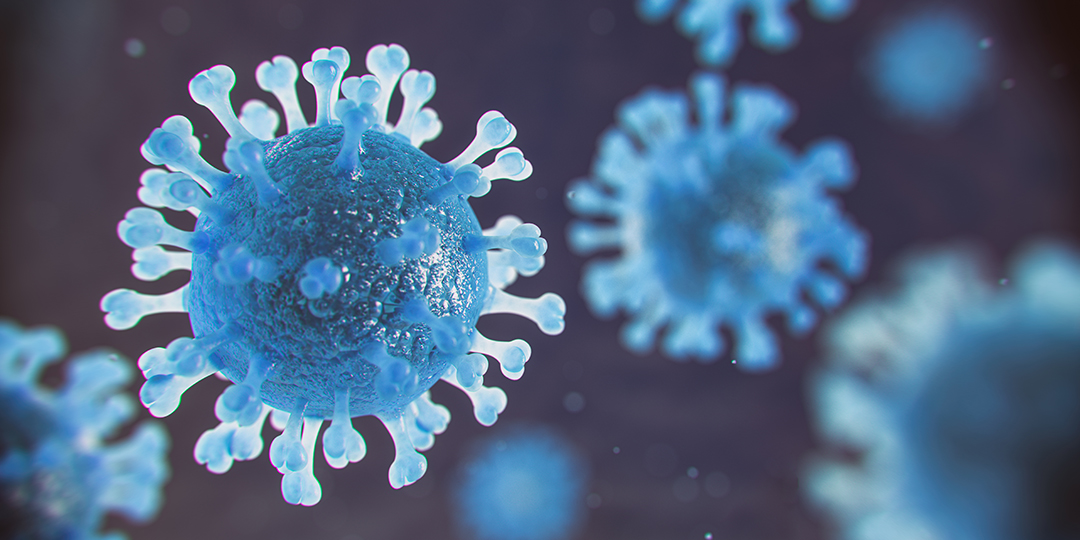This is the fifth in a series of stories on excellence and innovation in online teaching—despite the challenges posed by the pandemic.
The coronavirus had a significant impact on Associate Professor Jerry Honts’ molecular biology class, and not just because the course moved online. COVID-19 is now a major part of the curriculum and the primary focus of the final project.
When the pandemic first hit, Honts quickly revised his lessons to engage students in what’s real and current in their lives. He focused discussions on the virus at a cellular-level and therapeutic strategies for treating COVID-19. And for students’ final project, he challenged them to develop a research proposal for the diagnosis, prevention, or treatment of COVID-19.
“While I often talk about the medical or social implications of what we’re covering in my courses, I think this semester—more than ever—students realize that courses are not just things to check off a list of to-dos,” said Honts. “Students clearly see that the knowledge and insights they develop at Drake will have a direct, profound, and important impact on their lives long after they graduate.”

Honts is planning to incorporate biological aspects of the coronavirus into his fall semester courses: cell biology and bioinformatics. He said both courses will address issues associated with the virus and give students the opportunity to apply what they’re learning to the real-world.
“A Drake education is distinguished for its ability to deliver meaningful academic experiences that prepare students to navigate an increasingly complex world,” said Honts. “What better way to do this than to incorporate this extraordinary situation into their coursework, so they can not only engage in real-world learning but become inspired to make a difference.”


